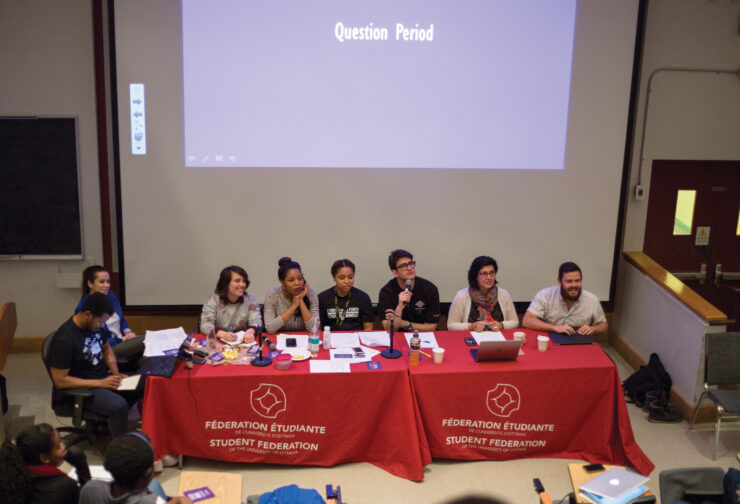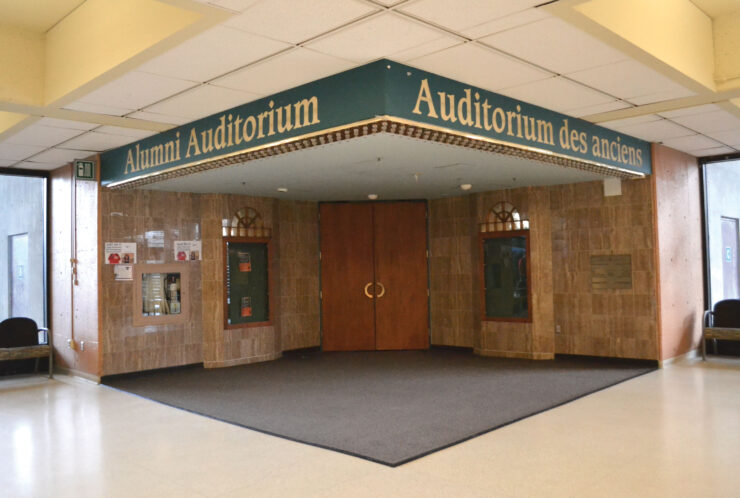Former educator hopes to bring student-centric approach to campus service
As classes resume this September, the Student Academic Success Service (SASS) welcomes its new director, Sylvie Tremblay.
Tremblay has worked in the K-12 education system for the past 12 years, in positions ranging from a high school teacher to a superintendent of education in the Conseil des écoles catholiques du Centre-Est, Ontario’s largest French-language school board.
During this time Tremblay oversaw a service similar to SASS but at the K-12 level, called the Service du soutien à l’apprentissage (Learning Support Service). The service consisted of general support training for teachers, including effective teaching and assessment, and special education training for teachers to accommodate students with disabilities.
Through this experience, she hopes to better equip students with the tools they will need to succeed in university.
Tremblay also holds four University of Ottawa degrees, having studied at the university through the 1980s and 1990s.
“It feels like I’m coming home after all these years. It’s a great feeling to be back on campus,” she said.
Tremblay already has big plans for SASS, hoping to build on what is already established and available to students.
“What has impressed me is all the programs and services for students on campus—the mentorship programs, counselling by students with students, that has impressed me the most.”
SASS currently consists of a number of services, such as the Academic Writing Help Centre, the Aboriginal Resource Centre, and the Counselling and Coaching Service. Tremblay believes that all of these programs are important and contribute to the well-being and success of students. Her main focus, therefore, is not on any one particular program, but on the students themselves.
“SASS is doing great work on campus to help students who are distressed, problems that go beyond the learning experience,” said Tremblay.
This fall, Tremblay plans to meet with faculty members and students to launch a “strategic planning process” for the service. She hopes to hear from students who have used SASS, as well as those who haven’t.
She believes that it’s important to listen to the students who might not have used the service in the past because they did not feel “connected” to what the service was offering.
“I really want to have that kind of conversation with students.”
Tremblay also plans to meet with the Student Federation of the University of Ottawa and the Graduate Students’ Association of the University of Ottawa to “get a sense of what (they) think the strengths and challenges are of SASS.”
Tremblay also hopes to engage with Aboriginal students on campus.
“Under 200 come (to the Aboriginal Resource Centre), but there are more than that on campus. I want to get a sense of what to do differently to get them to come to the Aboriginal Centre.”
With the start of a new year, Tremblay hopes that students will take advantage of the services offered to them by SASS.
“Students will (soon) be presented with the services to support them, but a lot don’t take them into account—they think that everything will come as easily as in high school.”
“By the time they need help, it’s too far in the semester,” said Tremblay.
She also believes that many students do not access help because they are ashamed to do so, and she hopes to end that stigma.
“There’s no shame in asking for help now. Everyone’s there and they want student success.”
Tremblay would like to remind U of O students to prioritize their well-being and academic success this year, and that SASS is there to help with both.






